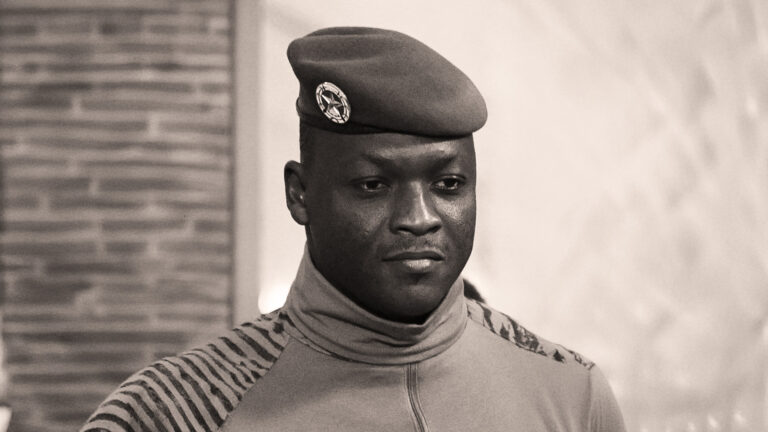Someone once described an interview with a prospective accountant. He asked the applicant, “Are you honest?” The applicant answered, “Yes, but not fanatically honest!” Since hearing that, I’ve often had fun imagining what it means to be moderately honest. It seems the prophet was correct. Deceit is a chronic condition of the human heart (Jeremiah 17:9). Speaking the truth doesn’t come naturally to any of us.
We Live in a Dishonest World
It’s hard not to get angry and despondent when you hear about yet another official on the gravy train, spewing lies and selling out his people for money. In South Africa, looting is estimated at R1 trillion, mainly due to the corrupt awarding of contracts and mismanagement of public funds. The Zondo Commission noted that ANC ‘cadre deployment’ was a great enabler in state capture.
Deceit is a chronic condition of the human heart.
Throughout the world, the last two years have demonstrated that politicians, media, health industries, even so-called experts and fact checkers, have no regard for the truth. We’ve seen scientists, doctors, and safety councils bought off just as easily as politicians and policemen. People know they’ve been lied to and they’re weary of broken promises.
Christian, “You’re Not of This World”
But the Bible tells Christians not to conform to their culture (Romans 12:1-2). We are God’s distinctive people, called out of the city of man “so that we will not share in her sins, so that we will not receive any of her plagues” (Revelation 18:4).
God tells believers to draw a clear line in the sand where integrity is concerned.
Where society has normalised lying, bribery, kickbacks, censorship, and collusion, God tells believers to draw a clear line in the sand where integrity is concerned. As citizens of God’s city, we are called to be fanatically honest!
Those Who Live with God Should Love Truth
Psalm 15 gives us some practical standards to determine how we are doing as Christians in regard to truth telling. King David opens with an important question, “Who can come before God?” (Psalm 15:1). And he ends on an assuring note, “He who does these things will never be shaken” (Psalm 15:5). “These things” are listed in Psalm 15:2-5, including generosity to the poor and doing righteousness.
In a sense, David is asking, “Who may be received as a guest into God’s tent, enjoying all the benefits and protections of his hospitality? Who may live as a citizen of his holy kingdom? What is the character of the one who walks in fellowship with God, whose heart, mind and actions are in sync with God’s character?” The Christian knows that we confidently approach God through faith in Christ (Hebrews 4:14-16). That is our sure source of fellowship with God.
Beyond our claims and intentions, what we say and do reveals integrity.
So we don’t read Psalm 15 as an entrance exam. Instead, it’s an exhortation. Our lives should reflect and demonstrate the fellowship with God we enjoy by grace. Because he now dwells with us by his Spirit at all times (1 Corinthians 3:16; 6:19), Psalm 15 isn’t limited to religious gatherings or experiences. Rather, it defines down-to-earth behaviour. It applies to every day: in business, online, at school or university, in politics, and journalism. Beyond our claims and intentions, it says that what we say and do reveals integrity.
Psalm 15 lists at least seven marks of a true worshipper. Below I’m going to highlight just two: she speaks truth (Psalm 15:2), and resists slander (Psalm 15:3).
Integrity: Speaking Truth from the Heart
In both the Old and New Testaments, speech is a mark of integrity and righteousness (Proverbs 12:22; 21:28; Matthew 5:37). There are no grey areas. Believers must speak the truth, which extends far beyond merely not lying. It is about living a life of integrity, where there is consistency between what we believe, say, and do.
The midwives did it in Egypt; Daniel and his friends refused to comply with false rituals in Babylon; true prophets confronted Israel’s corrupt leaders; Esther risked her life to approach King Xerxes and expose Haman’s plot. Jocabed hid her baby son Moses in a basket boat to resist the genocidal edict of the Pharoah. The Magi quietly defied a murderous king, while John the Baptist confronted Herod about his immorality. We have plenty of examples of believers who drew a line in the sand and acted with integrity.
True believers learn, live, and love the truth.
True believers learn the truth (Ephesians 4:20-25); live the truth (Ephesians 4:22) and love the truth (Ephesians 4:25). The repentant person is created to be “like God in true righteousness and holiness…therefore each of you must put off falsehood and speak truthfully to your neighbour” (Ephesians 4:25). Proclaiming the truth has never been a popular activity, but it’s what Christ calls us to do (Matthew 10:27). So let’s move to real life, where the rubber hits the road.
Speaking the Truth When it’s Hard
Speaking the truth requires that we never plagiarise or steal another person’s words, ideas, or inventions. It means always acknowledging our sources. We don’t pretend to be smarter than we are by inflating our CV or creating a false persona. Instead, we align ourselves with reality. “Do not think of yourself more highly than you ought, but rather think of yourself with sober judgment, in accordance with the measure of faith God has given you” (Romans 12:3).
Speaking the truth means that we don’t invent or listen to propaganda. It means that we do not suppress or hide the truth with word play or by ignoring empirical facts, even if we think censorship is for the ‘greater good.’ Truth lovers support transparency and free debate. They are careful not to manipulate data or build a straw man in order to demolish another person’s arguments.
A truthful person speaks the truth even when it’s awkward and costly. Speaking the truth at work may require us to expose sexual abuse, theft or fraud. It may lead us to write an open letter to expose injustice and lies, or demand accountability. Speaking truth may require us to be a whistleblower or to advocate for voiceless victims. It may compel us to engage in civil disobedience when laws are unjust. Speaking truth to power is the duty of a Christ follower wherever we have influence.
Christians must be people of their word, trustworthy and dependable.
As truth loving parents, we don’t assume that our children innately understand the implications of dishonesty when it is so commonplace in our society. The lines might be blurred for them. Think of how even the godly prophet Samuel and Eli the high priest failed to teach their sons, and so the next generation became spiritual abusers and extortionists. “But his sons did not follow his ways. They turned aside after dishonest gain and accepted bribes and perverted justice” (1 Samuel 8:3).
Speaking the truth means keeping our promises, even when it hurts (Psalm 15:4). Christians must be people of their word, trustworthy and dependable. And so, we are serious about our marriage vows; the Hippocratic oath; our judicial and professional oaths; our testimonies and agreements, verbal or written.
Being a Truth Teller Leaves No Room for Slander
Part of speaking the truth is resisting slander. Our tongues must utter no slur which harms our neighbour (Psalm 15:3). Slander is different from honest criticism, as it is by definition untrue.
Therefore, a Christian cannot join cancel culture in discrediting, silencing, demonising, isolating, or smearing someone’s reputation. It is an affront to Christ to use insulting epithets to dismiss and mock people, or to remain silent when others do so. Instead of ad hominem attacks, a Christian should engage respectfully with ideas, arguments, and evidence.
Sometimes our faith demands courage. Today, too many people are robbed of their good names for speaking truth instead of parroting the accepted narrative, but few Christians are willing to support them. Our righteousness is expressed in both how we treat one another and defend our neighbour. It is possible for our silence to violate the ninth commandment, “Do not give false testimony against your neighbour” (Exodus 20:16).
Our hearts haven’t evolved beyond envy, deceit, and the desire to control others.
Human nature hasn’t changed since David’s day, because the problems of rebellion and sin are deep-seated. Our hearts haven’t evolved beyond greed, envy, deceit, and the desire to control and destroy others. As virtuous and caring as our culture may appear, humanity pays no attention to God’s laws. But as citizens of the city of God, we must love God’s laws and resist lies and slander.
Aim at Fanatical Honesty
If we are honest with ourselves, we would all see that we fail to live lives of integrity on many fronts, but the story of Zacchaeus gives us hope.
Zacchaeus expressed his faith and forgiveness by becoming a fanatically honest man.
Zacchaeus was once a dishonest tax collector who robbed his own people to enrich himself. He was a sell-out and a liar working in an industry where state-sanctioned theft was the norm. But when he met Jesus, Zacchaeus was convicted. He repented of his own deceit and became an honest man. Instead of being a cheat, he repaid his victims four times over and generously gave to the poor. Jesus said to him, “Today salvation has come to this house, because this man, too, is a son of Abraham. For the Son of Man came to seek and save the lost” (Luke 19:8-10).
Zacchaeus was lost in his corruption until he made Christ the Lord of his life. He expressed his new faith and forgiveness by becoming a fanatically honest man. Christ is willing and able to help each of us to do the same.














